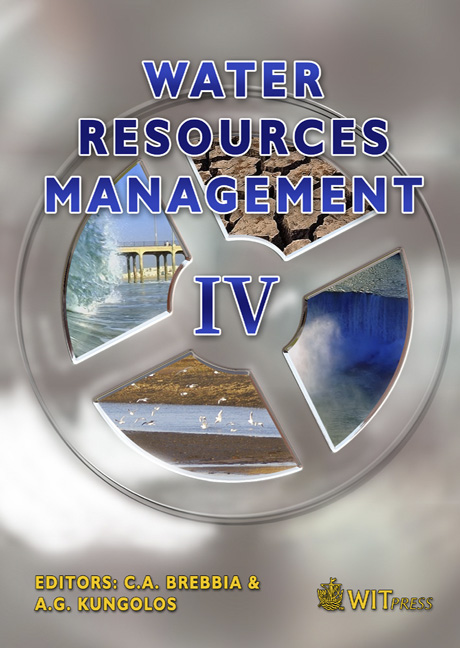Ecotypes In South-central Spain Rivers: The Interactions Among Land Use And Pollution
Price
Free (open access)
Transaction
Volume
103
Pages
11
Published
2007
Size
605 kb
Paper DOI
10.2495/WRM070231
Copyright
WIT Press
Author(s)
C. Llácer, J. L. Moreno & J. de las Heras
Abstract
A previous physiographical river typology was carried out in south-central Spain by applying System B of the Water Framework Directive (2000/60/CE). The classification distinguished four main river ecotypes: calcareous headwaters, siliceous rivers, plain rivers and large rivers. Physico-chemical water quality was assessed during period 2001-2003 to determinate natural hydrochemical composition and the relationship between land uses and pollutants, mainly nutrients. The river ecotypes corresponded to distinct hydrochemical types. Relatively unpolluted sites between river ecotypes showed no differences in turbidity, DQO, TOC, dissolved oxygen, nitrate, nitrite and phosphate. However, differences in EC, TSS and ammonium concentration between ecotypes were recorded. Correlation and regression analyses showed a strong relationship among land uses and nutrient concentration. Additionally, nitrate concentrations increased significantly when a higher percentage of land was dedicated to agriculture and less to forest. Adequate fertilizer management to avoid high surpluses, and therefore increase depuration efficiency by sewage treatment plant are absolutely necessary measures to reach the environmental objectives set by the Water Framework Directive. Keywords: stream ecotypes, water quality, nutrients, agriculture, Water Framework Directive, Castilla-La Mancha, Spain. 1 Introduction Freshwater ecosystems are greatly influenced by the characteristics of catchment area, as geology, geomorphology and climate. Although, human activities carried out in river catchments can be the most important modifier of the natural chemical composition of freshwater [1, 2]. Agricultural activities, urban sewage
Keywords
stream ecotypes, water quality, nutrients, agriculture, Water Framework Directive, Castilla-La Mancha, Spain.





